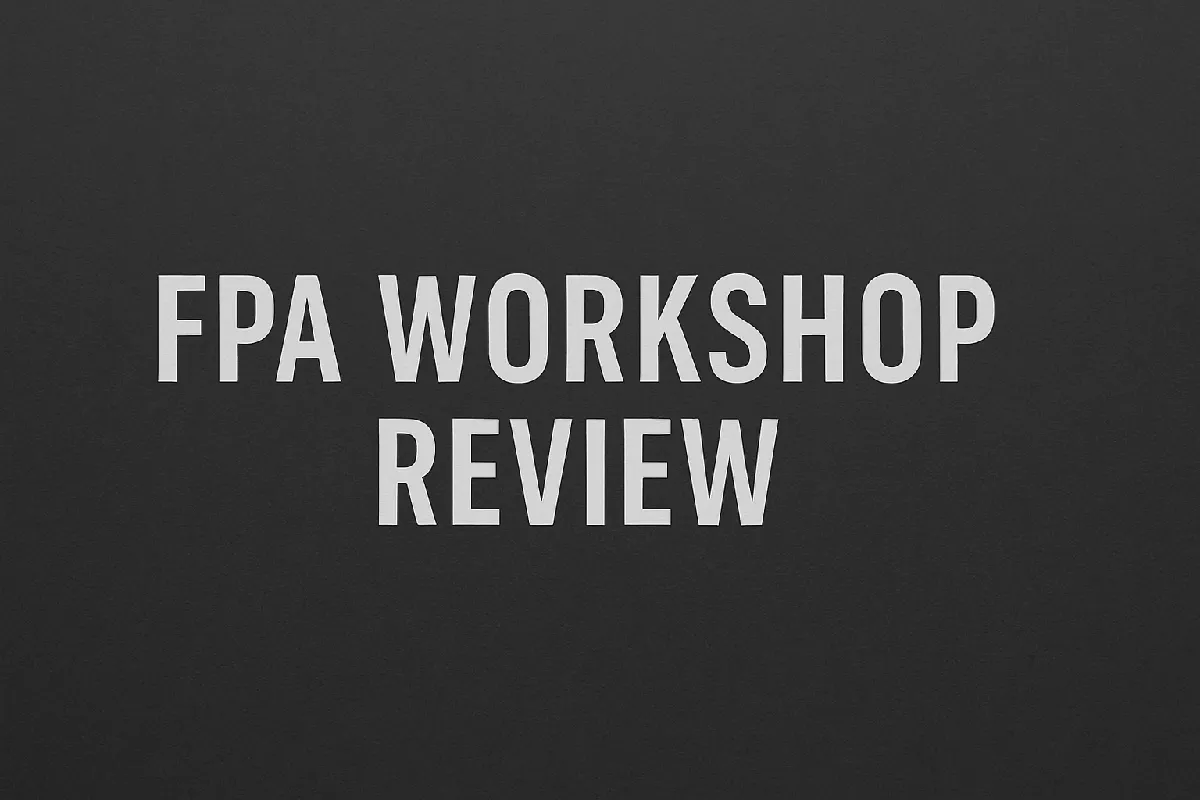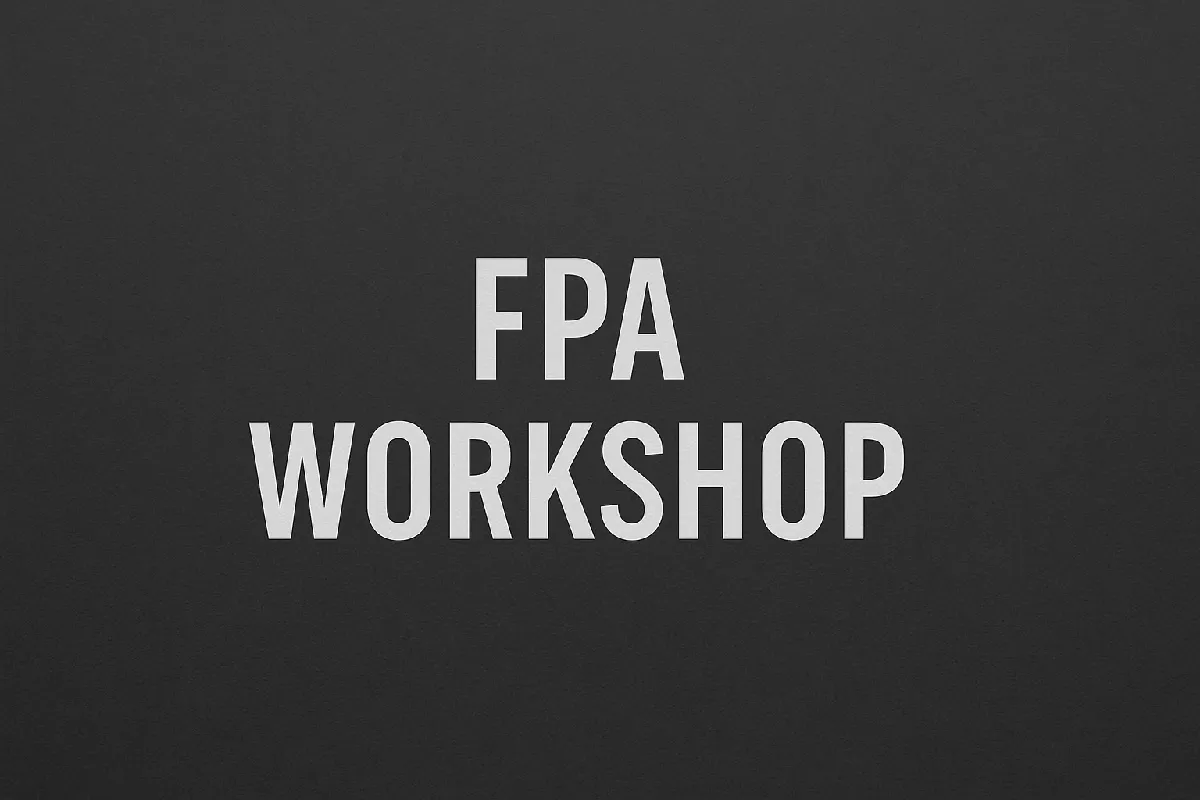FPA Workshop Review - Here's What to Expect From This Training
Welcome to this FPA Workshop review. This workshop serves as the entry point into a larger publishing system built around Amazon’s Kindle Direct Publishing platform.
The promise is simple: publish fiction books without needing to write them yourself, and earn passive income as royalties come in.

There are also Amazon programs built around reselling physical books, which I’ve reviewed here.
The idea sounds straightforward, but my experience showed it wasn’t nearly as simple in practice.
While the workshop is pitched as a free introduction, the real purpose is to funnel participants into a higher-ticket program costing several thousand dollars. That’s where the actual methods and coaching are offered.
This kind of workshop is framed as just one of many ecommerce systems people turn to when exploring ways to build income streams.
On the plus side, the presentation makes self-publishing feel accessible, even to complete beginners.
The structure and community support can give people confidence they wouldn’t have had on their own.
The downside is the cost of entry, ongoing expenses like ghostwriters, editing, and ads, and the fact that results vary wildly — with some students breaking through, and many others struggling to recoup their investment.
Pros
Makes Amazon publishing feel approachable for beginners
Includes community support and coaching at higher tiers
Can provide structure for those who want accountability
Cons
Workshop is mainly a funnel into a costly upsell
True costs extend beyond tuition (writing, covers, ads)
Mixed results among students, with some reporting losses
The promises can sound simple, but the truth is that these systems tend to break down in ways you don’t hear about in the sales pitch. I’ve unpacked the most common reasons here.
What is the FPA Workshop?
The workshop is set up as the first step into the world of Amazon publishing. It introduces the concept of outsourcing fiction book creation, packaging it under the idea that you don’t need to be a writer to publish.
The format is designed to get people comfortable with the process and spark interest in building a publishing business.
During the sessions, the emphasis is on potential rather than step-by-step training.
The bigger goal becomes clear quickly — the workshop is less about teaching you how to run the business and more about moving you toward a higher-ticket coaching program.
That’s where the detailed strategies, tools, and support are promised.
The positioning is clever. Instead of overwhelming participants with technical details, it paints an attractive picture of what life could look like if publishing royalties came in regularly.
For someone brand new, it creates curiosity and the sense that this is achievable with the right guidance.
At the same time, the actual how-to information feels surface-level. I found myself realizing that the workshop is really a sales funnel, not a full training.
That doesn’t necessarily make it useless — it can still serve as a low-risk way to test whether the model resonates.
But it’s important to understand what the workshop is and isn’t before making decisions about moving forward.
My Personal Experience With FPA Workshop
Going through the workshop gave me a clear picture of how these kinds of programs are structured.
The energy of the sessions was designed to get people excited about possibilities, and in that sense, it worked.
The examples of publishing success stories were inspiring, and the presenters were good at making the system feel within reach, even if you had no writing or publishing background.
What stood out most to me was how quickly the focus shifted away from teaching and toward selling the next step.
I came in hoping to pick up practical strategies I could use right away, but the material stayed fairly high-level.
Instead of walking through how to actually build and manage a publishing pipeline, it leaned more on the idea that all of that would come later — if you invested in the higher-ticket program.
It wasn’t completely without value. I did take away a sense of how the publishing model is positioned and the kind of commitment it might require. But it also left me with more questions than answers.
How do you manage ghostwriters? What about editing costs? How do ads really fit into the mix?
Those details weren’t covered at the workshop stage, which made me realize this was more of a sales funnel than a training.
I don’t regret sitting through it — it clarified whether or not I wanted to pursue this path further.
But it did reinforce the importance of asking hard questions before moving beyond the free or trial stage of any program.
Seeing how the workshop was structured made me realize the biggest challenge wasn’t following instructions — it was bridging the gap between what’s promised and what it really takes.
If you’re curious about why so many people hit that wall, I’ve broken it down in detail here.
How Much Does FPA Workshop Cost and What's The Refund Policy?

The workshop itself doesn’t cost anything to join, but it exists mainly to steer people toward the core program.
That’s where the real expense comes in. The full Fiction Profits Academy package is currently listed at $1,995 as a one-time payment, or you can choose a three-installment plan of $999 each.
That price point puts it firmly in the high-ticket category compared to other online training programs.
And it’s important to know that the tuition alone isn’t the whole story. To actually implement the publishing model, you’ll need to budget for ghostwriters, editing, cover design, and in many cases advertising.
Those recurring expenses can add up quickly and make the true cost significantly higher than the enrollment fee.
There is a guarantee in place, but it’s tied to specific requirements. The official terms outline a six-month refund policy, but only if you publish a book of a certain length within that timeframe and still don’t see results.
That means you’ll need to meet their publishing criteria before you can even request a refund, which limits how straightforward the guarantee really is.
From my perspective, the pricing isn’t unreasonable compared to other high-ticket programs in the Amazon space, but it’s not small change either.
Anyone considering this path should go in with their eyes open to both the upfront tuition and the ongoing costs that come with trying to turn the model into a sustainable business.
FPA Workshop Student Results and Testimonials
One of the big selling points of the workshop was the emphasis on student success stories.
A handful of polished examples were showcased, with screenshots of royalties and claims of publishing multiple books a month. These stories were meant to prove the system works if you follow it through.
On the surface, they were convincing, especially for someone just being introduced to the idea of earning through Amazon publishing.
Looking beyond the curated examples, the picture wasn’t as consistent. In forums and comment threads, I came across very different experiences.
Some participants mentioned hitting their first milestone — publishing a book and seeing royalties trickle in.
Others said they struggled to break even after paying ghostwriters and running ads.
A few even reported that the returns didn’t justify the expenses, leading them to stop altogether.
The common thread among these mixed results was the amount of effort and additional money students were willing or able to put in.
Those who invested heavily in outsourcing and marketing seemed to stand a better chance, while those hoping for a more hands-off business often felt disappointed.
That contrast is what made the testimonials in the workshop feel incomplete to me. The success stories are real, but they don’t represent the full spectrum of outcomes.
For anyone considering this route, it’s important to weigh not just the potential upside but also the risk of spending thousands without seeing proportional returns.
FPA Workshop Pros and Cons
Every program like this comes with trade-offs, and this one is no different. On the positive side, the workshop is a low-pressure way to test the waters.
You don’t have to commit money upfront to sit through the sessions, and that alone gives you a chance to gauge whether the publishing model even appeals to you.
For beginners who find the idea of writing daunting, the emphasis on outsourcing makes the process feel less intimidating.
There’s also a certain reassurance in knowing there’s a structured path and a community you can lean on if you choose to move forward.
The drawbacks are harder to ignore. The cost of the main program is high, and the expenses don’t stop there.
To have any shot at scaling, you need to spend more on content creation and marketing.
That means the barrier to entry is steeper than it first appears. The reliance on outsourcing also creates quality-control challenges.
Not every ghostwritten book will be good enough to sell, and that can quickly eat into your budget.
Another concern is the imbalance in results. While success stories exist, they don’t paint the full picture.
Many students report little to no return, which raises questions about how repeatable the system really is.
For someone looking for predictable outcomes, that inconsistency can be discouraging.
When weighing the pros and cons, it becomes clear that this workshop is less about delivering a complete training and more about introducing you to an expensive and uncertain business model.
Final Verdict
After going through the workshop, my overall impression is that it works more as an introduction than a full training.
It does a good job of presenting the possibilities of publishing on Amazon without needing to write the books yourself, and for some people that vision can be motivating enough to explore further.
The reality, though, is that the real commitment starts after the workshop ends.
The $1,995 price tag, plus the ongoing costs of ghostwriters, editing, and ads, means this isn’t a simple side hustle.
It’s a high-risk business model that requires patience, capital, and a willingness to manage multiple moving parts.
The polished success stories prove it can work, but the less-publicized struggles show that many don’t reach the same results.
For someone who’s curious and has resources to invest, it might be worth considering.
For others, especially those looking for a lower-cost entry point, the workshop is more of a reminder to weigh all angles before jumping in.
What you get out of it will depend less on the promises made in the sessions and more on how much time, money, and persistence you’re prepared to put in.
If there’s one takeaway for me, it’s that most people don’t fail in these kinds of systems because the strategies are broken — they fail because of the gap between what’s presented and what it actually takes to follow through.
That gap is where expectations and reality collide, and it’s where many drop off.
If you want to see a breakdown of why so many people run into that same gap across different programs — and what separates the few who make it work — I’ve put together something here: check it out.